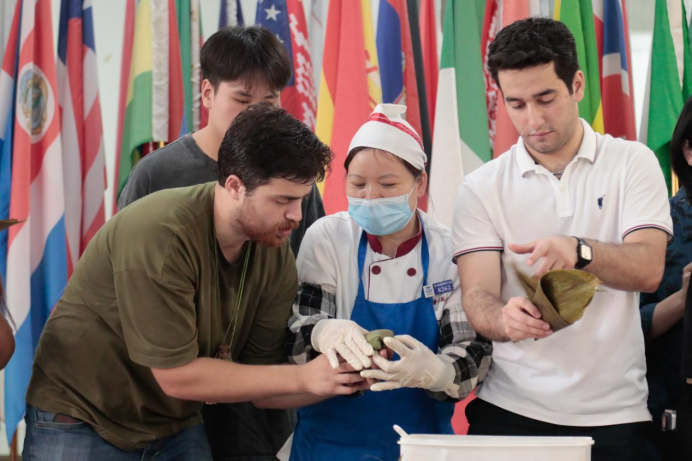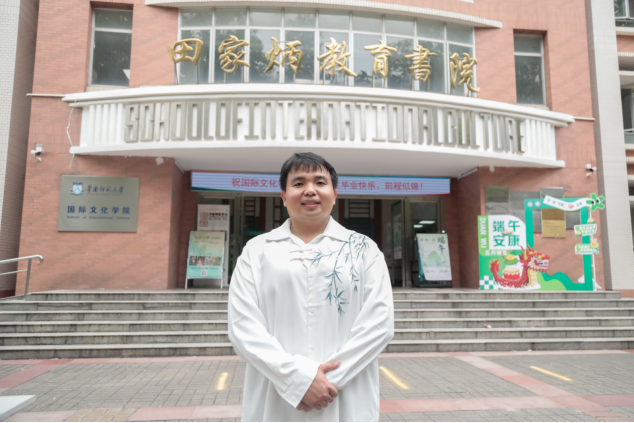
Likes
“Pull! Pull!” Accompanied by the powerful slogans, the rope moved towards one side inch by inch. When the red ribbon on the rope finally crossed the middle mark, Hamada, an international student from Comoros, together with his teammates were ecstatic to win the tug-of-war match.

Students take part in a tug-of-war game at the School of International Culture.
The tug-of-war game, part of the immersive Dragon Boat Festival Cultural Events, was held on May 28 at the School of International Culture of SCNU, with Chinese and international students from different countries vying for the winning positions.
"This is my first time participating in a tug of war and it's incredibly interesting!” said Hamada. “It makes me think about the power of teamwork and when my team wins, I feel very happy. I will participate again whenever possible."
Zhao Di, deputy director of the Office of International Exchange and Cooperation, said the activity plays a significant role in promoting traditional culture and fostering global exchange. "May everyone comprehend the values of convergent harmony in Chinese cultural through this game."

The canteen staff teaches the international students to make zongzi.
On top of tug-of-war game, the event also featured zongzi making and tasting. Chinese and international students engaged in learning how to make zongzi together. They learned to fold bamboo leaves, fill them with glutinous rice, and tie them with string under the guidance of chefs from dining hall, making traditional food zongzi. The dining hall also offered eight different flavors of zongzi for teachers and students to taste, ranging from savory to sweet with a variety of fillings.

Jin Tan, dean of the School of International Culture, makes a speech.
Jin Tan, dean of the School of International Culture, said zongzi is not merely delicious food, but also serve as a carrier of Chinese culture. “We hope today’s event allows students from all over the world to experience the charm of Chinese culture and strengthen friendships through cultural exchange."

Hong Haoyun, an Indonesian student, accepts the interview.
Indonesian student Hong Haoyun performed the Chinese song "Blue and White Porcelain" (Qing Hua Ci) during the event. He explained that he chose this song because blue and white porcelain is such an important symbol of traditional Chinese culture. He was also surprised to find that Indonesia’s traditional dish, bakcang, is very similar to Chinese food zongzi.
"Chinese cuisine has a richer variety of flavors compared to Italian food,” said Italian student Shu Han, after tasting zongzi. “The event allowed me to make friends from different countries and learn about diverse cultures—it was a wonderful experience."
Source from SCNU News Center
Written by Chen Xiaowen, Deng Shuyu, Zhang Meicheng, Wu Chaoqi, Ou Minyi
Proofread by Edwin Baak
Edited by Li Jianru
What to read next:










